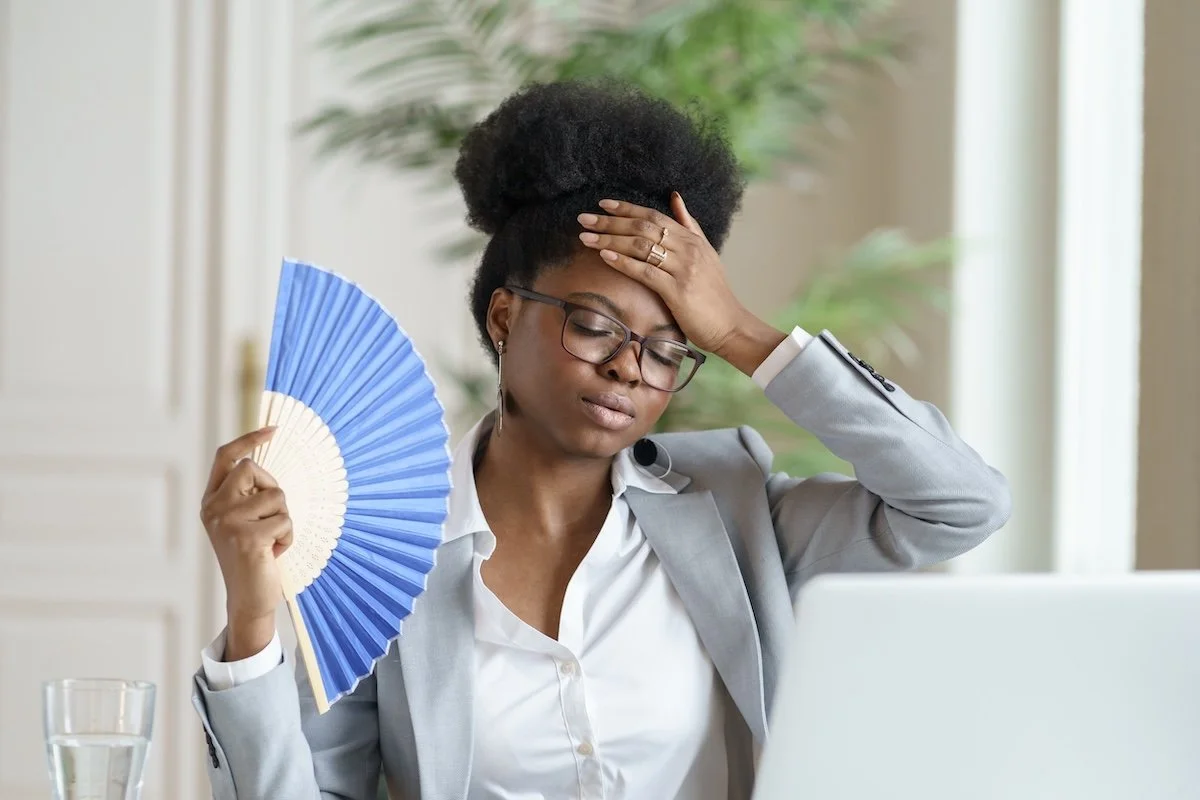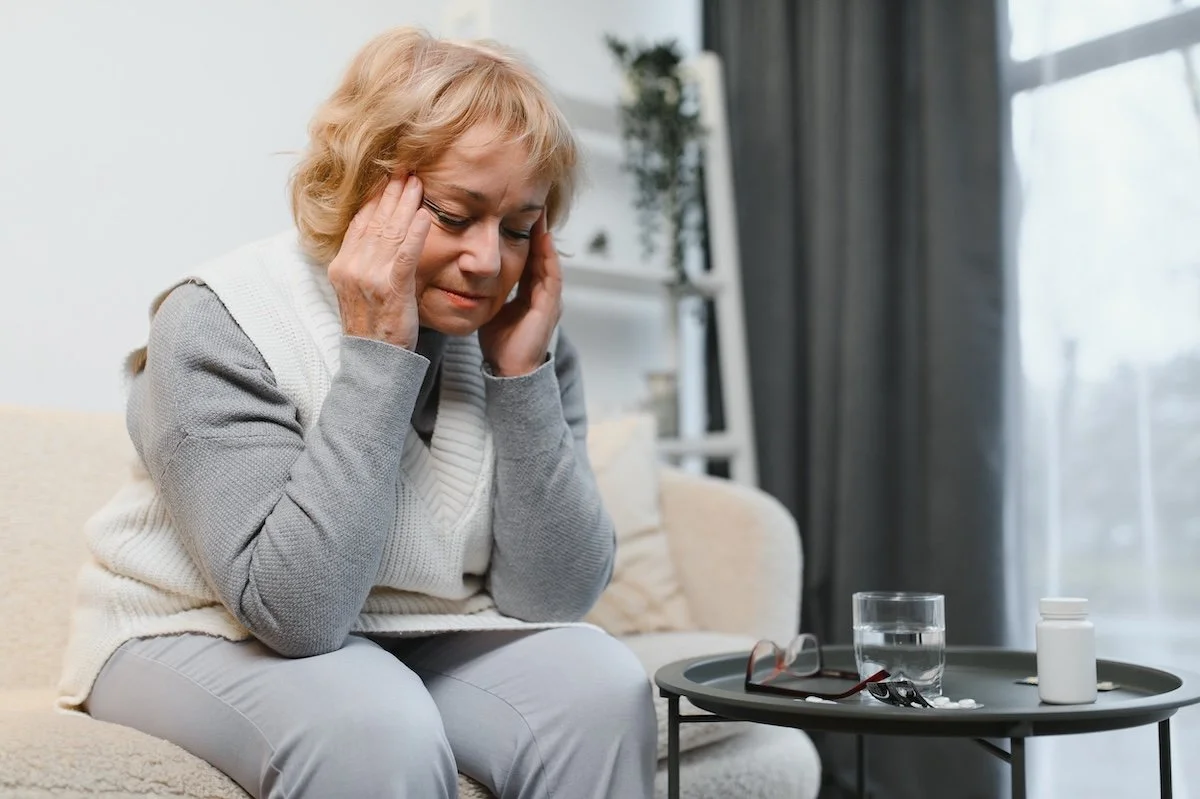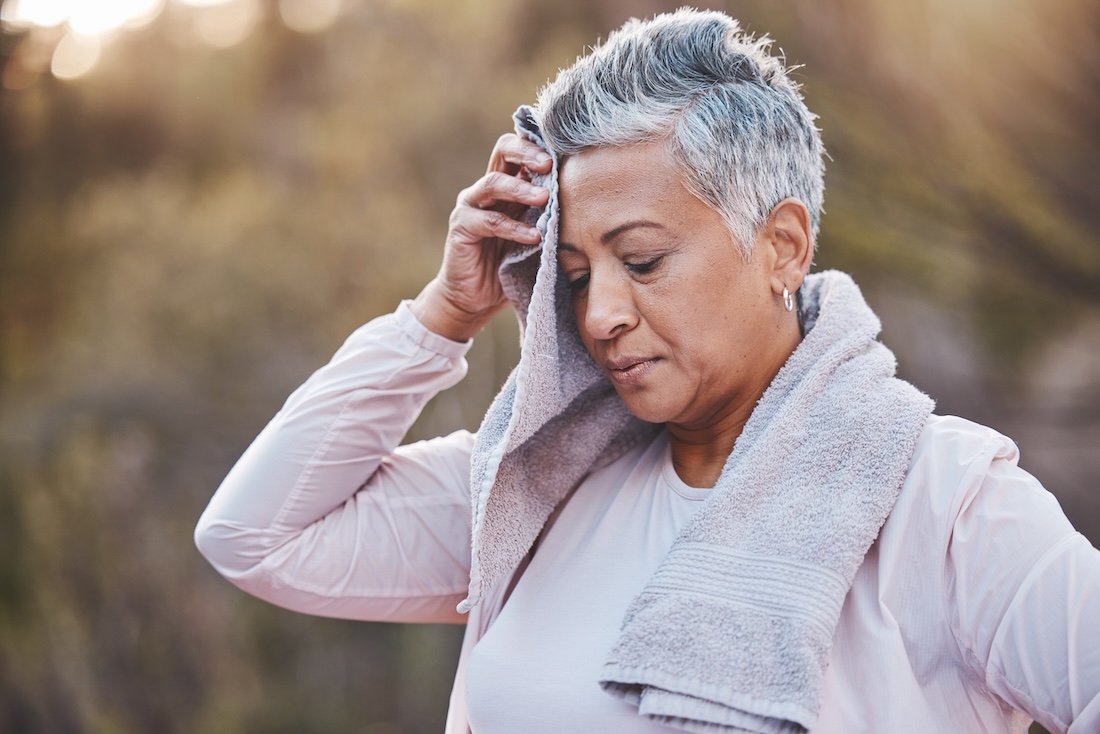Hot-Flash Heat Dome: Cooling Night-Sweat Survival During Lake Erie's Steamiest Weeks
Lake Erie sunsets feel like something out of a postcard, but they hide a humid truth. From late June through early August, the water and land lock in heat that lingers long after dark. In Westlake, the overnight low often stays above 70°F, while relative humidity hovers near 70%. Those numbers are manageable for many sleepers, yet for women in perimenopause or post-menopause, they can transform a normal night into a rolling sequence of hot flashes, drenched sheets, and 2 a.m. frustration.
If you wake to peel damp pajamas off your back, you are in good company. More than 60% of Midwestern women aged 45 to 60 report experiencing summer menopause sleep issues, and the majority say night sweats peak during July heatwaves. Understanding why temperature and humidity hit harder after 45 is the first step toward relief.
Hormones Meet Humidity
Estrogen helps the hypothalamus regulate body temperature. When estrogen levels drop or fluctuate, the hypothalamus narrows its comfort zone. Small rises in core temperature can trigger a full fight-or-flight response: blood vessels dilate, sweat glands open, heart rate increases, and body heat is released through the skin. A humid bedroom slows sweat evaporation, leaving skin unable to cool efficiently. The hypothalamus senses failure, fires again, and the cycle repeats until dawn.
Women also lose vasodilatory support from estrogen. In cooler months, the effect is annoying but manageable. Add ninety-degree daytime highs and sticky nights, and the missing hormone becomes impossible to ignore.
Build a Micro-Climate for Restful Sleep
1. Keep the bedroom cooler than the rest of the house
Aim for 65 to 67 degrees. Many families balk at lowering the thermostat overnight, especially with energy costs on the rise. A portable window AC unit or a dual-zone mini split allows you to cool a single room without freezing the entire home.
2. Harness air movement
Ceiling fans enhance sweat evaporation, even without lowering the air temperature. Set blades to spin counterclockwise so they push cool air down. If you rent or cannot install a ceiling fan, a tall oscillating fan placed at the foot of the bed creates a similar effect.
3. Choose moisture-wicking textiles
Cotton breathes but can hold dampness. Performance-grade bamboo, Tencel, or eucalyptus fiber sheets pull sweat away and dry quickly. Sleepwear made from lightweight merino wool blends sounds counterintuitive, yet the fiber absorbs moisture vapor and releases it through the fabric surface, reducing clamminess.
4. Cool from the ground up
Heat rises. Place a small, battery-powered fan on the floor, pointing upward, between the bed and the wall. The gentle draft breaks up hot layers of air that collect around the mattress and legs.
Evening Habits That Lower Core Temperature
Hydrate wisely
Sip sixteen ounces of water with a pinch of electrolyte powder one hour before bed. Dehydration thickens blood and raises heart rate, both of which nudge the hypothalamus toward hot flash territory. Too much plain water can trigger overnight bathroom trips, so add electrolytes that help fluid stay inside blood vessels.
Soak, then chill
A lukewarm fifteen-minute shower ninety minutes before bedtime sounds soothing; it's also backed by science. Warm water draws blood to the skin. When you step out, evaporative cooling drops core temperature for up to an hour, enough time to slip into sleep before heat rebounds.
Limit late-day alcohol and sugar
Both raise heart rate and cause blood sugar swings that activate the sympathetic nervous system. If a cookout calls for margaritas, stop by at 7 p.m. and switch to soda water with lime afterward. Evening stability supports slower, deeper breathing that helps the thermostat function more smoothly.
Food Tweaks That Support Hormone Balance
Add flaxseed. Two tablespoons provide plant lignans that may offer mild estrogenic support, as well as fiber that helps steady glucose levels.
Grill salmon or lake trout twice a week. Omega-3 fats help reduce systemic inflammation, which can make hot flashes feel more intense.
Cut processed salt. High sodium intake improves flavor but encourages fluid shifts that exaggerate sweating episodes. Use herbs, citrus zest, and a hint of smoked paprika instead.
Exercise Timing Matters
Weight-bearing activity improves bone density and mood, yet vigorous evening workouts spike core temperature and adrenaline. Shift strength training or running sessions to early morning when parks are cooler and ozone counts are lower. If after-work exercise is your only window, choose Pilates or slow-flow yoga in an air-conditioned studio and finish with a five-minute cooldown in front of a fan.
Pharmaceutical and Supplement Options
Some women need more than environmental tweaks. Treatments include:
Low-dose transdermal estrogen for those without contraindications.
Micronized progesterone at bedtime. It offers mild sedative properties and enhances slow-wave sleep.
Non-hormonal agents, such as low-dose paroxetine or gabapentin, can be used for the relief of hot flashes.
Herbal compounds like black cohosh or Siberian rhubarb. The evidence is mixed, and the quality varies, so discuss brands and dosing in the clinic.
Through concierge women's health visits, we fine-tune options to each patient's cardiovascular risk profile and sleep goals. A quick follow-up via secure messaging allows us to adjust doses without delay.
When to Reach Out for Help
Persistent night sweats warrant evaluation if they:
Soak through sheets nightly for more than two weeks.
Pair with unexplained weight loss, fever, or racing heartbeat.
Trigger insomnia severe enough to impair daytime function.
Call our office at 440-797-1871 if any red flag arises. Same-day blood work or imaging can rule out thyroid disease, infection, or rare malignancies.
Your Cool Summer Starts Tonight
Lake Erie humidity doesn't have to disrupt your sleep schedule. Craft a cooler bedroom by leaning on moisture-wicking fabrics, hydrate with intention, and schedule evening rituals to help nudge your core temperature downward. If lifestyle tactics fall short, concierge care offers personalized hormone or non-hormone therapies without the wait of weeks for an appointment.
Ready to reclaim restful nights and sharper mornings? Schedule a summer menopause sleep consultation at conciergemedicineofwestlake.com or call 440-797-1871. The thermometer may climb past ninety, but your bedroom can remain a calm sixty-seven, and your body can follow suit.

























